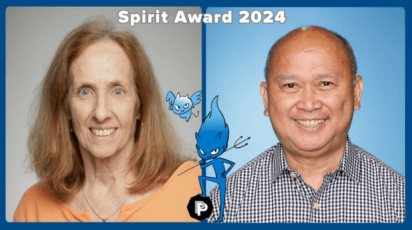News
Poly Connected: Tackles ‘Cancel Culture’
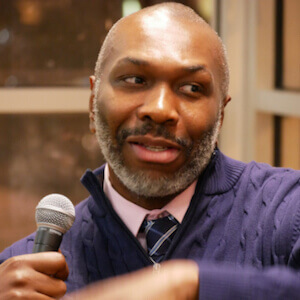
Dr. Donald Earl Collins was our third Poly Connected speaker when he spoke to Grades 7-12 students on April 22 about “cancel culture” and his recent article, “The Fake and the Real in American Culture.” He is also the author of Fear of a “Black” America: Multiculturalism and the African American Experience and a freelance writer and historian who has written on the topics of multiculturalism, education reform, race, and the history of African American and American identity.
Dr. Collins referenced the case of Alexi McCammond, who had to resign from the position as editor-in-chief of Teen Vogue just days before she was to begin running the magazine because of Anti-Asian tweets from 2011-12. Dr. Collins talked about what constitutes a real apology and acknowledging that what one did is wrong.
“Cancel is overused in the way that ‘woke” is overused.”
Dr. Collins explained that “cancel comes out of the Black culture” going back to the music of the 1970s and 1980s. In the U.S., he said, because of racism, “millions of people are cancelled” before they have a chance to live their lives.
He also cited Clyde McGrady’s article in The Washington Post, “The Strange Journey of ‘Cancel’ from a Black-culture Punchline to a White-grievance Watchword.”
Q & A Session with Dr. Collins
Students from AP US Government and Politics moderated a Q & A with Dr. Collins following his talk.
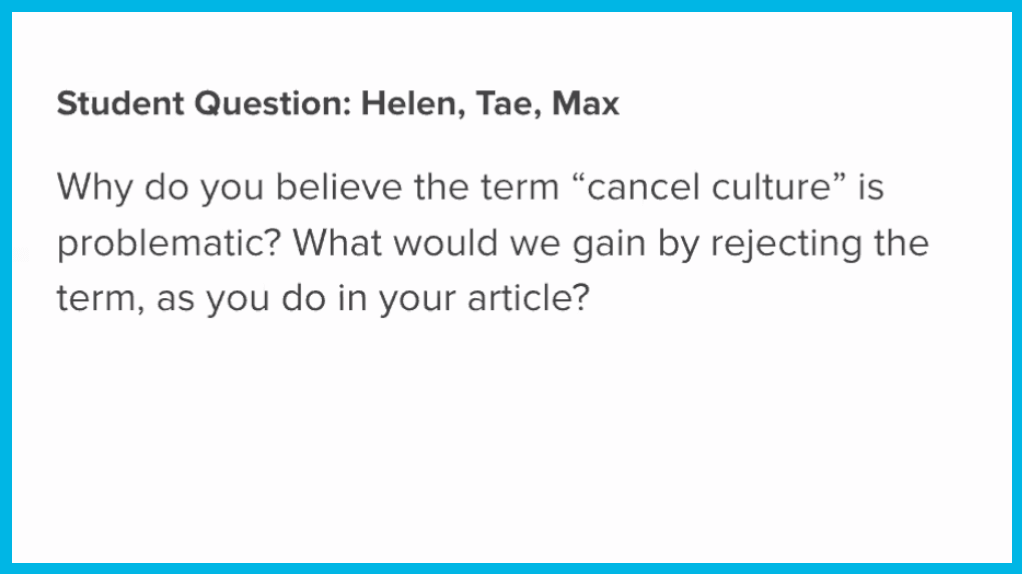
Dr. Collins said the term is “overused and the meaning has been twisted.” He explained, “It is not about replacing anything.” It should be about “holding people accountable,” he said.
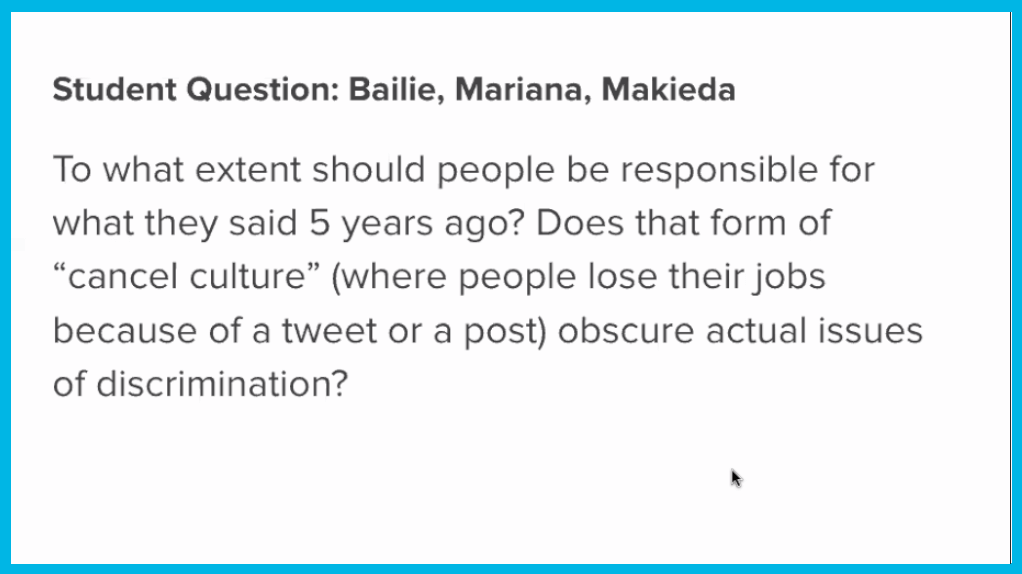
“It depends,” said Dr. Collins. He said that it may have been different if Alexi McCammond “was 37 and had apologized and had more experience” for her job. Students asked if a change in behavior would cancel out past bad behavior. “No one size fits all,” Dr. Collins said.
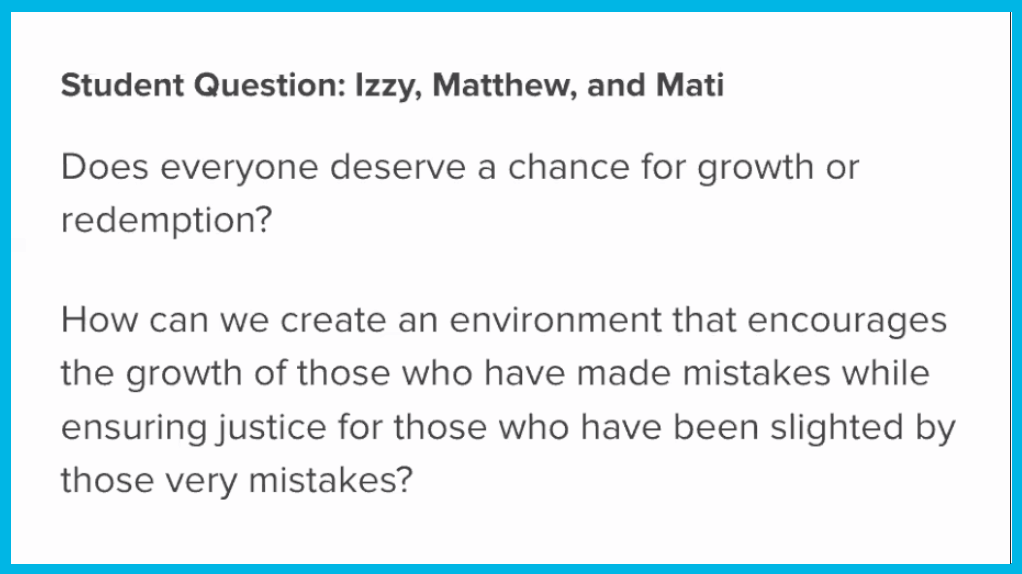
“The number one way to redeem yourself is just apologize,” Dr. Collins said. He said that Americans have a culture in which they don’t want to say “sorry.” He reiterated that people need to learn from their mistakes and “take responsibility” for what they do.
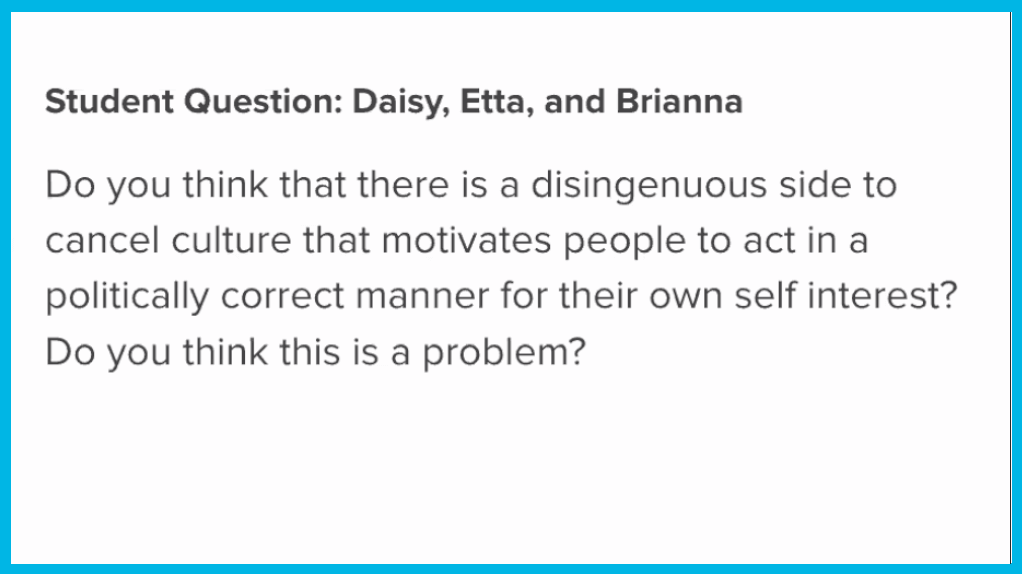
“Yes,” replied Dr. Collins. “Political correctness is disingenuous.” He cited the example of a sports shoe manufacturer that airs “progressive commercials,” but behind the scenes may have unfair contracts with athletes, who are used in the commercials.
Again, he stressed the importance of taking responsibility and the use of language that makes people sound “lesser than.”
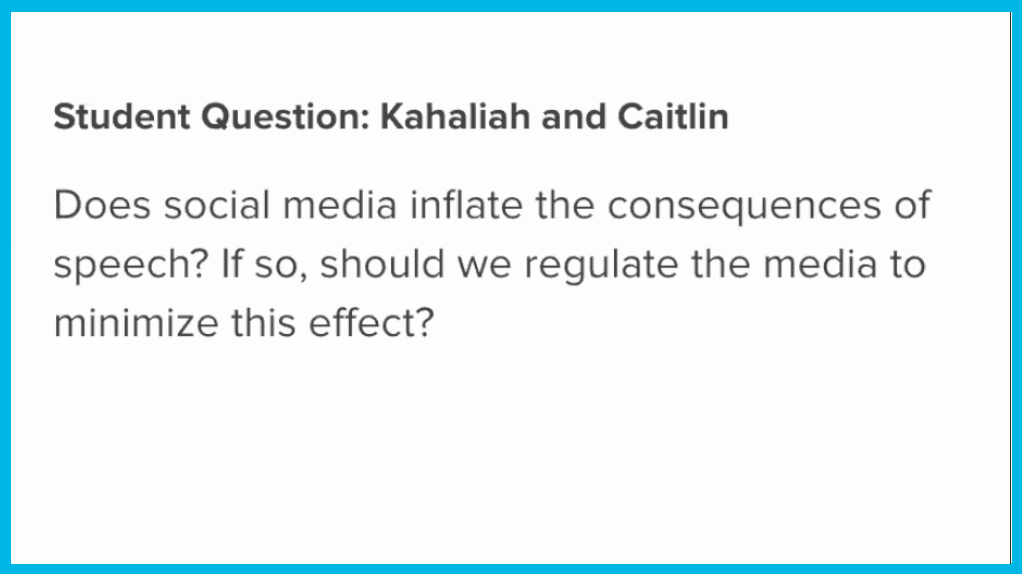
“Yes,” Dr. Collins said. “It magnifies everything.” He compared protest culture now to that of years ago and how a protest is organized in a flash now, but might have depended on word of mouth or TV in the past. As for regulating social media, he said, “You can’t really regulate it. You can only call it out.”
In response to a final question about redirecting power, Dr. Collins said, “You would have to have power to begin with.” He said a better question would be why “the culture is so narcissistic.” He admonished the students to “Keep your voices out there. This is an all hands on deck” effort.
Thinking About the Presentation
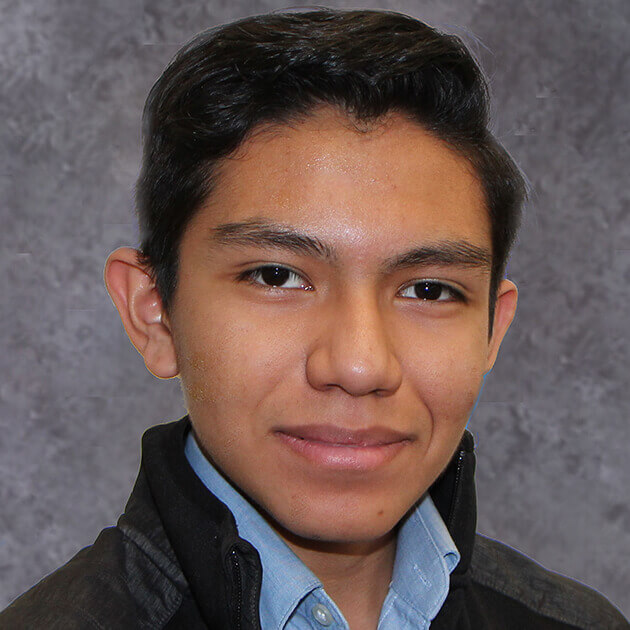
Afterward, Marcos Perez ’23 said of the Poly Connected event, “My perception and understanding of ‘cancel culture’ was definitely a lot more refined after hearing Dr. Collins. I myself identify as a democratic socialist and I hear the phrase be used heavily to undermine accountability. It infuriates me to see and hear petty debates, usually led by members of the political right. over what should be steps toward accountability and holding entities responsible based on the duties they might partake in. Being able to put that into words is something beneficial that changed after hearing Dr. Collins.”
In response to what he heard about social media, Perez said, “I always strive to be prudent on social media, but that does not mean I shy out of necessary debates. Social media is an effective tool for the spread of correct news and information, stepping away from antitrust laws and section 230 that applies to these recognizable media platforms, my view on social media hasn’t changed. I do hope that the users of the social media platforms, and anyone really, recognize that being behind a screen does not mean they are not bound or responsible for what they might say. Actually, social media platforms are a great way to inform the public, the claim of freedom of speech, for example, tends to be used as a ‘get-out-of-jail-free card’ when in reality your freedom of speech is not intended for you to say anything but for you to be able to hold your government accountable and express your views on it.”
“Something that stuck with me from the assembly,” said Perez, “was the context in which social accountability happens. Social accountability is subjective to the responsibility you hold, but it will always be a crucial aspect of an effective society where people are held responsible for their actions especially when people enter any role or level of leadership.”


